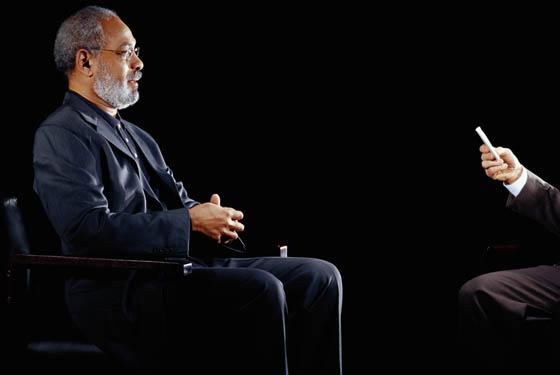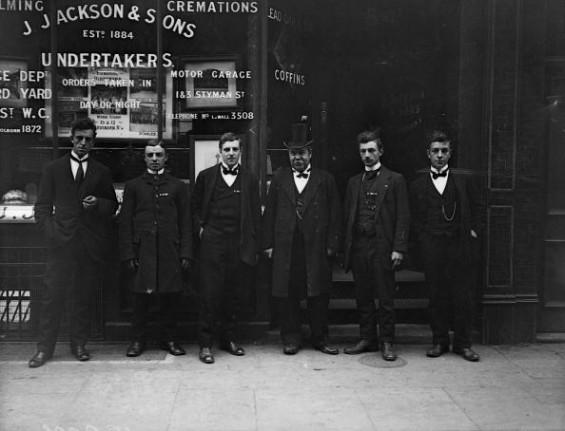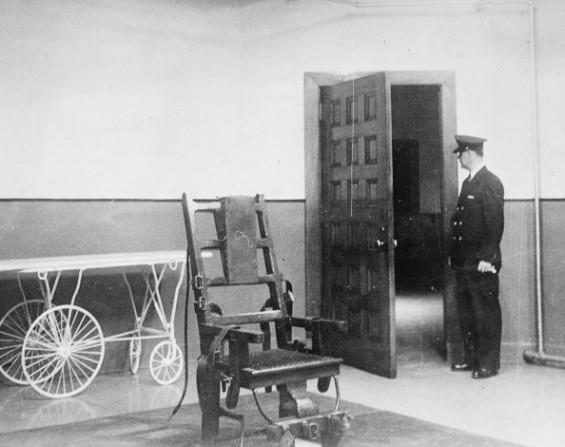Just as there is nothing certain in this world but death and taxes, there is nothing certain in language but that it will change, and that people will react badly. One of the changes people find most offensive is the spread of professional jargon that has been coined to replace simpler, clearer words we already have. Anyone up for some collaborative incentivizing going forward? No? Well, maybe one day your great-grandchildren will be. Here are 12 words that people once thought were horrible gobbledygook that nobody flinches at anymore.
1. Contact

While many people still don’t like impact as a verb, contact has settled into verbdom quite comfortably. But it had a hard time in the beginning. In 1937, it was number four on a widely published list of the 10 most “overworked” words, with members of the advertising industry named as the worst offenders. In 1931, an official at Western Union wanted to institute a company-wide ban on the usage. He said the verb shouldn’t be allowed “to soil any good Western Union paper.” He went so far as to say the “loathsome” person who invented this “hideous vulgarism” should have been “destroyed in early childhood,” arguing that “so long as we can meet, get in touch with, make the acquaintance of, be introduced to, call on, interview or talk to people, there can be no apology for contact.”
2. Interview

While interview may have been a proper alternative to contact in 1931, people weren’t always friendly to it, at least in the sense where it means the asking of questions by members of the press. An 1882 book on rhetoric describes how this verb was “first accepted in jest, then violently denounced, and finally, by a strange fate, it appears to be accepted with mournful resignation.” In 1890, a New York Times article took to task the “newspaper fiends who have forced us to admit to the rights of citizenship the verb ‘to interview.’”
3. Optimism/Pessimism

These came into fashion in the 1880s, and by 1892, one magazine columnist complained about “the way in which the word Pessimism gets flung about of late … one encounters it at every turn … and it is made to serve as the label of almost every expression of discontent with the existing order of things.” In 1904, another exasperated magazine writer asked, “Who will contribute the first dollar to a fund to furnish definitions of the words optimism and pessimism to writers who use the words as synonyms of cheerfulness and despondency?”
4. Mortician

Getty Images
This word was first printed in the February 1895 issue of Embalmers Monthly, where it was proposed as a replacement for “undertaker” or “funeral director.” People outside the industry didn’t much care for it, complaining that it “grates the ear.” For decades afterward it was called “ugly,” “affected,” an “uncouth stranger,” and an “atrocity” of a euphemism. The literary critic Harry Levin called it a “pseudo-Latinism of dubious currency.”
5. Purist
In 1883, a journalist named Godfrey Turner went on an awesome rampage against purist, writing, “What a word! We have here positively the only instance of an attempt to make a noun, by this clumsy inflection, direct out of a raw adjective.” He wasn’t done with it yet though, going on to write in another publication, “whoever first committed to the legibility of black and white that vicious noun-substantive has, it may be hoped, lived to repent a deed that offends forever against verbal purity … among all blundering conceits of modern phraseology, [it] stands distinguished from its misshapen fellows by an unapproachable singularity of malformation.”
6. Reliable

Wikimedia Commons
An 1860 review of a new dictionary of English lamented that author “gives a place to the superfluous word reliable, which has well nigh superseded the old fashioned idiomatic term trustworthy.” The reviewer is pleased, however, that the dictionary explains why “this anomalous and deformed word” makes no sense: To get the intended meaning, the word should be “reliuponable,” which would be “ludicrous.”
7. Antibody

Wikimedia Commons
In his 1916 writing guide, Sir Arthur Quiller-Couch calls this word “a barbarism, and a mongrel at that.” He complains that “when it became an accepted custom for each nation to use its own language in scientific treatises, it certainly was not foreseen that men of science would soon be making discoveries at a rate which left their skill in words outstripped,” and that “they would bombast out our dictionaries with monstrously invented words.” He concludes that “for our own self-respect, whilst we retain any sense of intellectual pedigree, antibody is no word to throw at a bacillus.”
8. Electrocution

Getty Images
In 1899, the Chicago Eagle advised its readers that this word, though “popularly applied to this process of inflicting capital punishment, is a bad and incorrect one,” and the correct term was “execution by electricity.” The Sacramento Daily Record-Union said, “the English language has enough to bear in the way of absurdity, slang and vulgarity, without this new affliction.” But the best condemnation of electrocution came from Ambrose Bierce’s 1909 catalogue of language peeves, Write it Right, where he called the word “no less than disgusting, and the thing meant by it is felt to be altogether too good for the word’s inventor.”
9. Proposition
For decades, style guides hated the use of proposition for proposal. In 1914, an English professor named Richard Burnton described his irritation with the word this way: “Take the ubiquitous and awful word proposition. Used at first in business and perhaps needed there, it has waxed so arrogant that you hear it on every side, wherever two or three are gathered together. ‘That’s a different proposition’ is sickeningly familiar to the jaded ear, and may now be taken to refer to anything from a comparison of the beauty of women to a statement of a new turn in the Balkan imbroglio.”
10. Demote

When people started using demote as the opposite of promote in the 1890s, they would put quotation marks around it to indicate there was uncertainty about whether it was okay to use. Some argued that retromote would be a better word from an etymological standpoint, but one letter to the editor called both coinages “barbarisms,” and proposed that the proper term for sending someone down a class was the one used at Harvard—drop. Though demote came to be accepted pretty quickly, it appeared on the “Don’t List” of editorial standards for the “New York Herald” until 1918 with the comment, “there is no word demote.”
11. Balance

Getty Images
Balance, in the sense of “what’s left of something” was once frowned upon as an irritating misuse of bookkeeping jargon. In 1913, The American Business Encyclopedia and Legal Adviser advised against using it in social situations outside the office where it was considered “vulgar.” The literary critic Richard Grant White lamented that “people speak even of the balance of a day, of spending thus or so the balance of their time, or even the balance of their lives” and that he found this “hideous English…it cannot be too often or too severely censured.”
12. Donate

Getty Images
White didn’t hold back on donate either: “I need hardly say, that this word is utterly abominable – one that any lover of simple honest English cannot hear with patience and without offence. It has been formed by some presuming and ignorant person from donation…when we have give, present, grant, confer, endow, bequeath, devise, with which to express the act of transferring possession in all its possible varieties.”
Read the full text here: http://www.mentalfloss.com/blogs/archives/155454#ixzz2FVMcm34G
--brought to you by mental_floss!
